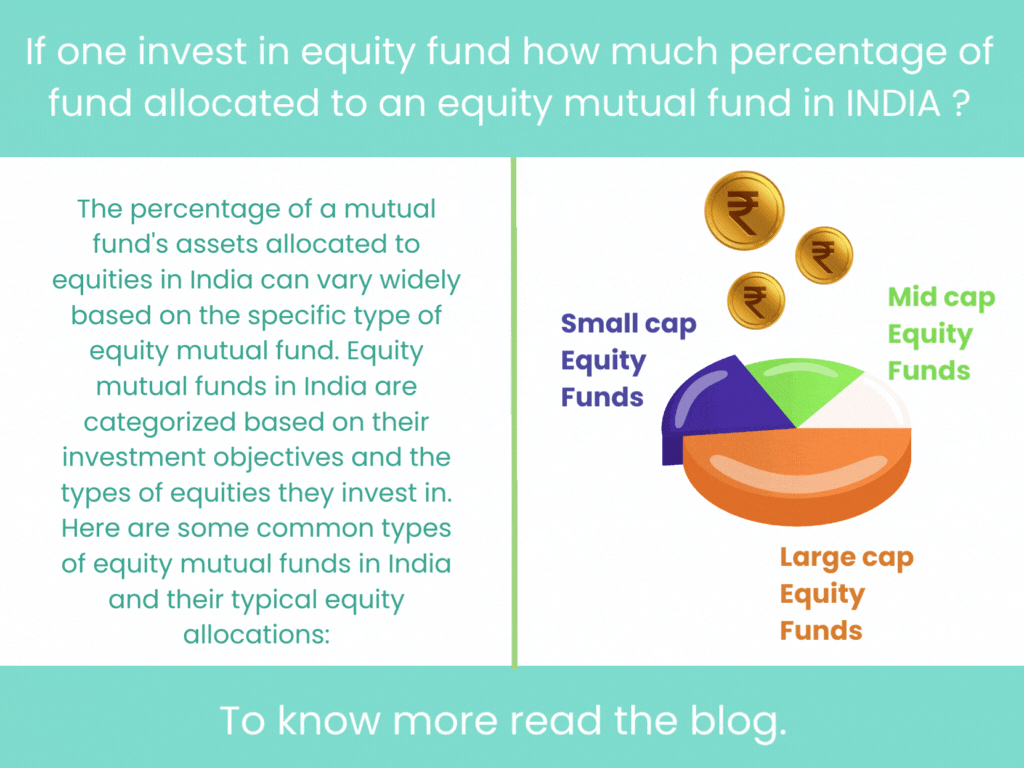If one invest in equity fund how much percentage of fund allocated to an equity mutual fund in INDIA ?
The percentage of a mutual fund's assets allocated to equities in India can vary widely based on the specific type of equity mutual fund. Equity mutual funds in India are categorized based on their investment objectives and the types of equities they invest in. Here are some common types of equity mutual funds in India and their typical equity allocations:
Large-Cap Equity Funds: These funds primarily invest in large, well-established companies with a significant market capitalization. Equity allocation typically ranges from 80% to 100% of the fund's assets.
Mid-Cap Equity Funds: These funds invest in medium-sized companies with moderate market capitalization. Equity allocation typically ranges from 65% to 85% of the fund's assets.
Small-Cap Equity Funds: These funds focus on small companies with lower market capitalization. Equity allocation typically ranges from 60% to 80% of the fund's assets.
Multi-Cap Equity Funds: These funds have the flexibility to invest across large-cap, mid-cap, and small-cap companies. Equity allocation can vary widely depending on the fund manager's view on market conditions and opportunities.
Sector-Specific Equity Funds: These funds concentrate their investments in specific sectors of the economy, such as technology, healthcare, financials, etc. Equity allocation can be close to 100% within the chosen sector.
Index Funds and Exchange-Traded Funds (ETFs): These funds aim to replicate the performance of a specific stock market index (e.g., Nifty 50 or Sensex). Their equity allocation mirrors the composition of the underlying index, which is typically close to 100%.
It's important to note that these percentages are indicative and can change over time based on market conditions and the fund manager's discretion. Additionally, equity funds in India may also hold a small portion of their assets in cash or cash equivalents for liquidity purposes or to manage market volatility.
When you invest in an equity mutual fund in India, your investment will be pooled with those of other investors, and the fund manager will allocate the collective pool of funds to various equity and other investments as per the fund's investment strategy.
Before investing in any mutual fund, it's essential to carefully read the fund's offer documents, prospectus, and fact sheets to understand its investment approach, asset allocation, fees, and associated risks. Moreover, consider your own financial goals, risk tolerance, and investment horizon while selecting the most suitable equity mutual fund for your portfolio.


